當前位置: Language Tips> 雙語新聞
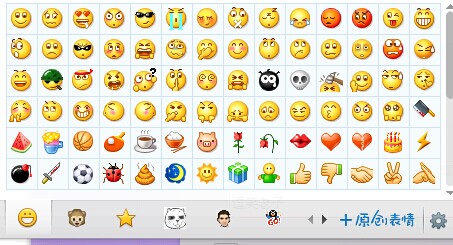
"Grin" is the most popular emoji on the instant messaging tool QQ in China, and was used more than 52 billion times in 2015, according to a report released by Tencent.
is the most popular emoji on the instant messaging tool QQ in China, and was used more than 52 billion times in 2015, according to a report released by Tencent.
騰訊公司發布的一份報告稱,“齜牙”表情是即時聊天工具QQ上最受歡迎的表情,在2015年使用次數超過520億次。
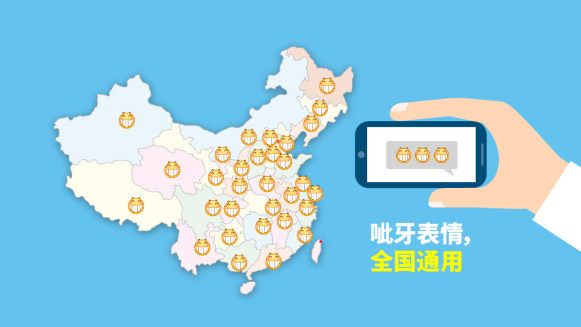
"Smile" , "chuckle"
, "chuckle" , "scowl"
, "scowl" and "grimace"
and "grimace" follow, ranking No 2 to 5 respectively.
follow, ranking No 2 to 5 respectively.
排在第二位至第五位的分別是“微笑” 、“偷笑” 、“發呆” 、和“撇嘴” 。
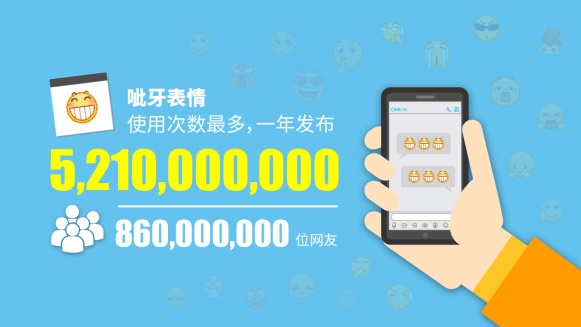
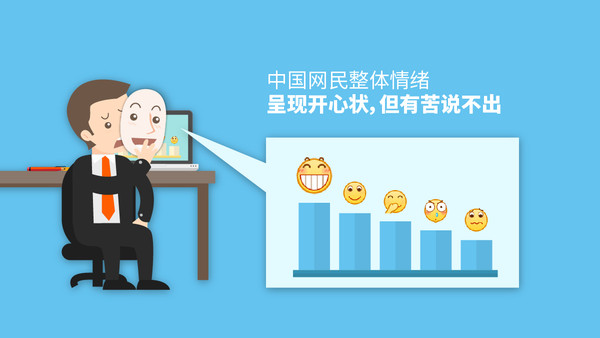
“發呆”和“撇嘴” 有苦說不出
The report was based on the data of more than 860 million QQ users, for whom means polite, cute, and friendly, and has become the best way to say hello when chatting online.
means polite, cute, and friendly, and has become the best way to say hello when chatting online.
該報告的數據采集自超過8.6億QQ用戶,他們認為“齜牙”表情 禮貌、可愛而又友好,因而是網上搭訕的不二之選。
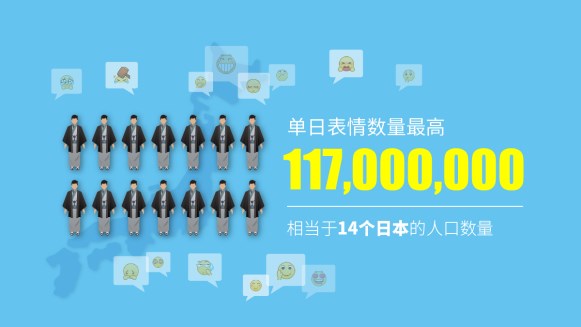
Different people prefer different emojis. Though not listed in the top 5, icons of crying are popular among women and kids.
當然,各人自有各人鐘愛的聊天表情。哭泣類表情雖未能入駐前五,卻贏得了女性和兒童的青睞。
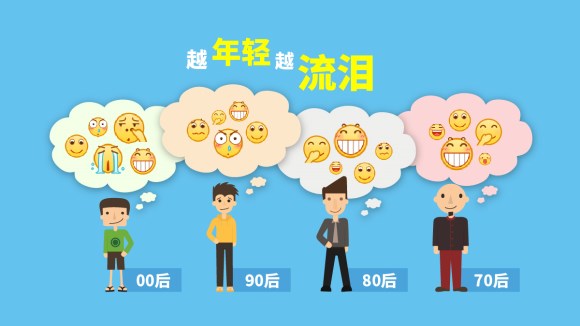
Females like the emoji "sob" most, which is also used to represent acting like a child. Kids and teenagers between the age of 5 to 15 favor "whimper"
most, which is also used to represent acting like a child. Kids and teenagers between the age of 5 to 15 favor "whimper" , which is frequently used for an icon representing tears.
, which is frequently used for an icon representing tears.
女性最喜歡“流淚” ,讓人覺得她們童心未泯。5到15歲之間的青少年喜歡“大哭” ,常用來代表淚水。
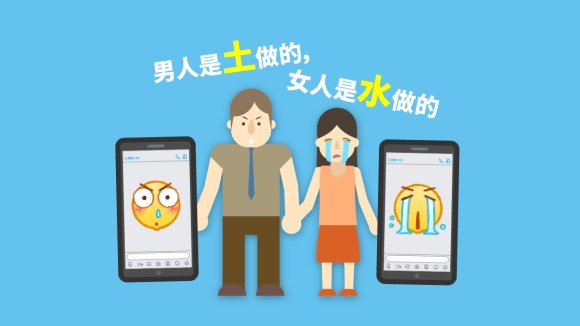
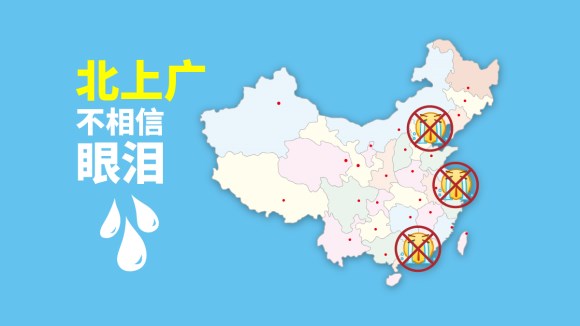
Meanings of emojis change over the years, too.
各個表情的意思也在逐漸變化。
The emoji "smile" used to represent kindness, but now indicates unhappy and dismissive. For example, one can reply with when he disagrees with and makes fun of others.
used to represent kindness, but now indicates unhappy and dismissive. For example, one can reply with when he disagrees with and makes fun of others.
“微笑” 曾經表示友好和善,如今卻代表不開心和鄙視。例如,在反對并取笑對方時就可以用這個表情。
The emoji "wave" used to mean goodbye, but now is more often used to mean to pretend that "we are no longer friends". For example, one can say "I don't want to see you anymore"
used to mean goodbye, but now is more often used to mean to pretend that "we are no longer friends". For example, one can say "I don't want to see you anymore" , which is usually not taken seriously.
, which is usually not taken seriously.
“再見” 曾經用來告別,如今卻往往用來佯裝“我們不能愉快地做朋友了”。比如,我們可以說“再也不見 ”,當然這一般是開玩笑的啦。
The emoji "laugh and cry" , which was chosen as the word of the year of 2015 by the Oxford English Dictionary, is a new star with several different meanings, for example laughing out loud, expressing extreme happiness, laughing helplessly, or embarrassment.
, which was chosen as the word of the year of 2015 by the Oxford English Dictionary, is a new star with several different meanings, for example laughing out loud, expressing extreme happiness, laughing helplessly, or embarrassment.
“笑哭” 當選為牛津英語詞典2015年度詞匯,是一顆身負多重含義的新星,表達的含義可以有哈哈大笑、喜不自勝、無力苦笑、尷尬無語等。
英文來源:中國日報網
譯者:ShalalalaSherry
審校&編輯:yaning
上一篇 : 單身族廣告回擊春節“逼婚”
下一篇 : 荷蘭警方:老鷹大戰無人機
關注和訂閱


電話:8610-84883645
傳真:8610-84883500
Email: languagetips@chinadaily.com.cn